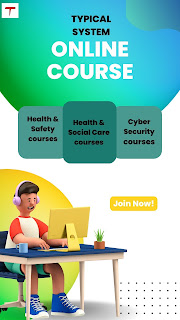Mastering Effective Communication: Principles of Communication Training and SSCP Training for Care Settings
In any care setting, effective communication is crucial for maintaining a safe, supportive, and efficient environment. Whether you work in healthcare, social services, or any other care profession, mastering the principles of communication training is essential. Furthermore, understanding the importance of handling information in care settings, while adhering to best practices and legal requirements, is paramount. In this article, we will explore the principles of communication training and the significance of SSCP (Safe and Supportive Communication Practices) training when it comes to handling information in care settings.
Principles of Communication Training
Active Listening: Active listening involves giving full attention to the speaker, understanding their message, and providing appropriate feedback. This principle enhances understanding, empathy, and trust between individuals, fostering better relationships and effective problem-solving.
Non-Verbal Communication: Non-verbal cues such as facial expressions, body language, and tone of voice play a significant role in communication. Training in non-verbal communication helps professionals convey empathy, respect, and understanding, enabling clearer and more meaningful exchanges.
Clarity and Conciseness: Principles of Communication Training in care settings should be clear, concise, and easily understood by everyone involved. Professionals must avoid jargon, use simple language, and adapt their communication style to suit the needs of diverse individuals, including those with cognitive or language impairments.
Empathy and Emotional Intelligence: Empathy is the ability to understand and share the feelings of others, while emotional intelligence involves recognizing and managing emotions effectively. Training in these areas helps care providers build rapport, establish trust, and respond appropriately to the emotional needs of individuals in their care.
Conflict Resolution: Conflict is inevitable in care settings. Training in conflict resolution equips professionals with the skills to manage disagreements constructively, promote open dialogue, and find mutually acceptable solutions. Effective conflict resolution ensures a harmonious and respectful care environment.
SSCP Training:
SSCP training focuses on the safe and supportive handling of information in care settings. This training addresses the ethical, legal, and practical aspects of handling sensitive data, ensuring confidentiality and privacy while promoting effective communication.
Confidentiality and Data Protection: SSCP training emphasizes the importance of maintaining confidentiality when handling personal, medical, or sensitive information. Professionals learn about data protection laws, ethical guidelines, and the potential consequences of breaching confidentiality. They are trained in using secure systems and procedures to ensure the privacy and integrity of information.
Consent and
Information Sharing: Care providers must obtain informed consent before sharing or disclosing any personal information. SSCP training helps professionals understand the legal and ethical requirements for information sharing, as well as how to communicate effectively with individuals to gain their consent.Documentation and Record-Keeping: Accurate and timely documentation is crucial in care settings. SSCP training educates professionals on the importance of thorough and organized record-keeping, ensuring that information is properly documented, stored securely, and easily accessible when needed.
Communication Channels and Technology: SSCP training explores various communication channels, including digital platforms and technology, used in care settings. Professionals learn about their advantages, potential risks, and best practices for secure communication, particularly when using electronic health records and telehealth platforms.
Conclusion
Mastering the principles of communication training and undergoing SSCP training are essential for care providers in any setting. Effective communication skills not only enhance relationships but also contribute to better care outcomes. By understanding the importance of handling information in care settings and adhering to ethical and legal guidelines, professionals can ensure the privacy, confidentiality, and integrity of sensitive data. Investing in comprehensive training programs empowers care providers to communicate effectively, build trust, and provide safe and supportive care to those they serve.


Comments
Post a Comment